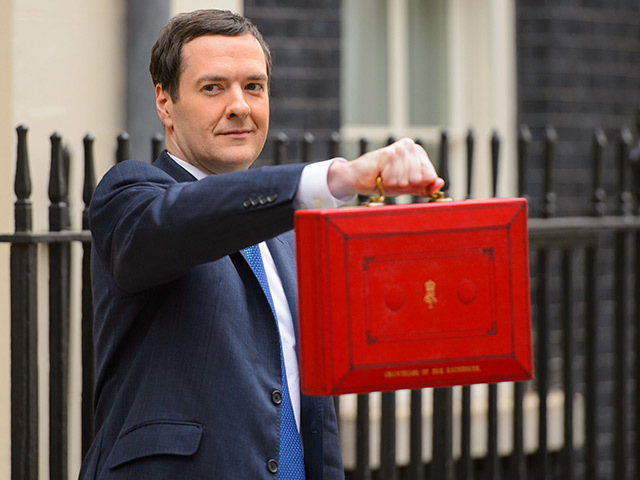
The Chancellor’s Budget on March 19 was largely positive for the UK oil & gas sector. Announcements such as the High Pressure/High Temperature Allowance will hopefully stimulate further developments.
However, contained within the Budget was confirmation that the Chancellor intends to continue with a dramatic change to the way drilling contractors and accommodation units operating on the UK Continental Shelf (UKCS) are taxed.
This was undoubtedly bad news for the sector and a somewhat incongruous announcement given all the other good news.
To explain the change in more details it is necessary to give a little background as to how drilling contracts would usually be structured.
Typically, a group will own a drilling rig outside the UK and hire it into a UK group company to fulfil a drilling contract on the UKCS using a bareboat charter; a bareboat charter being a charter of a rig or vessel without a crew.
Prior to the change, the UK company would get a tax deduction for the full bareboat fee, subject to this meeting all the requirements of being at arm’s length to avoid profit stripping from the UK. In many cases the pricing agreement would have been formally agreed with HMRC.
The new rule now overrides any agreed pricing arrangement with HMRC and restricts the deduction of the UK company to 7.5% of the historic cost of the drilling rig.
This cap on the deduction is likely to be lower than the previously agreed arm’s length bareboat charter deduction, hence dramatically increasing, in most cases, the profits that are subject to tax in the UK.
This will clearly impact the drilling contractors and owners of accommodation vessels, but why might this be bad news for the sector as a whole?
Any business that has an increase in a cost, such as tax, will try and maintain its profit margin in response. In the context of drilling rigs there are two potential reactions.
Firstly, drilling rigs and accommodation units are mobile and owners could assess whether maximum returns can be obtained by keeping them in the UK. Secondly, the drilling contractors could look to pass the additional costs on to their customers.
Either outcome is unwelcome as there is already a shortage of drilling units on the UKCS and the sector is already burdened by high costs.
The change is likely to be most acutely felt in the exploration and appraisal phase of development. This is the riskiest stage of the oil and gas cycle with no guarantee that expenditure on a rig will lead to any future profits.
It is therefore most susceptible to being cut when costs increase, as is the likely outcome of this tax change. At a time when exploration drilling is already at an all-time low this is bad news.
These changes could take some time to play out as many of the drilling rigs and accommodation units are contracted for years to come. So the question as to whether there is rig flight from the UKCS or a change in the rates sought will not be immediately visible.
However, the change in the taxation of the drilling contractors is immediate.
The rules are being applied from April 1, irrespective of the fact that a contract was entered into envisaging a different tax position. Therefore the drilling contractors will be carefully scrutinising contracts to check whether there is a capability to renegotiate the pricing owing to a change in law.
Given the oil and gas industry universally agrees that this change is likely to have a detrimental impact, why then would the Chancellor persist with it?
Vigorous representations were made by the all the affected players in the oil and gas sector in the wake of the initial announcement in the Autumn Statement towards the end of 2013.
In light of these, the formula was increased to 7.5% of historic costs and all vessels other than drilling rigs and accommodation units were excluded from the change.
These changes are extremely welcome in that they remove even greater costs being introduced to the sector.
The reason the measure was not completely reversed would seem to be a question of perceived fairness. The payments to the rig owner are clearly escaping the UK tax net and this was not thought to leave sufficient profit in the UK.
However, this does not necessarily mean that these payments are profit. Clearly the rig owner has costs of maintaining a rig, finance costs and the risk that the drilling rigs are not used.
Any rational economic model would conclude that to take on the significant risk of borrowing to build a drilling rig (which can cost up to $600million) requires a significant reward, otherwise the rig owner would do something else with the money.
So the question is whether the restriction in tax relief for costs incurred is a proportionate response to the perceived fairness issue.
Overall the Budget is likely to have been welcomed by many in the oil and gas industry.
But there is a nagging doubt that a future problem has been created that could stifle the fulfilment of future developments on the UKCS by making drilling rigs more expensive or simply not available in the UK.
Every business operating in the UK oil and gas sector will recognise its obligation to pay tax.
The question of whether this measure is perceived to fairly deal with the share of tax to be taken by the UK, will be indirectly answered by the reaction of the industry.
The benefits and the costs of the measure will be seen in whether future development suffers.
Colin Pearson is a tax partner at EY in Aberdeen
